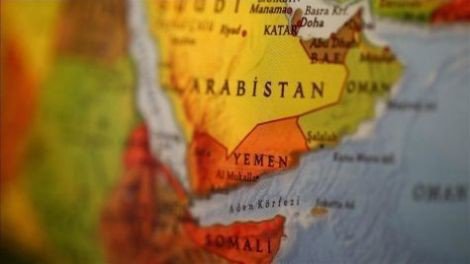* Photo: Anadolu Agency (AA) - Archive
Click to read the article in Turkish
Turkey's parliament on Tuesday (January 26) approved an extension of Turkey's forces serving in the Gulf of Aden, Somalia, and the Arabian Sea.
As reported by the state-run Anadolu Agency (AA), the General Assembly of the Grand National Assembly of Turkey (TBMM) has ratified a Presidential motion extending the authorization of the deployment until February 10, 2022. Since it was first approved by parliament in 2008, the motion for the deployment has been extended 13 times.
The last extension was approved on February 8, 2929 and entered into force after being published in the Official Gazette two days later.
The Gulf of Aden, near Yemen and close to the Bab el-Mandeb Strait, the world's fourth-biggest choke point for oil transit, is a strategic energy route for Mideast crude oil. The Arabian Sea and the Horn of Africa country of Somalia is adjacent to the gulf and the strait.
About the Gulf of Aden
The Gulf of Aden (Arabic: خليج عدن, Somali: Gacanka Cadmeed) also known as the Gulf of Berbera is a deepwater gulf between Yemen to the north, the Arabian Sea to the east, Djibouti to the west, and the Guardafui Channel, Socotra (Yemen), and Somaliland to the south. In the northwest, it connects with the Red Sea through the Bab-el-Mandeb strait, and it connects with the Arabian Sea to the east. To the west, it narrows into the Gulf of Tadjoura in Djibouti. From the late 1960s onwards, there started to be an increased Soviet naval presence in the Gulf. The importance of the Gulf of Aden declined when the Suez Canal was closed, but it was revitalized when the canal was reopened in 1975, after being deepened and widened by the Egyptian government. The waterway is part of the important Suez Canal shipping route between the Mediterranean Sea and the Arabian Sea in the Indian Ocean, with 21,000 ships crossing the gulf annually. This route is often used for the delivery of Persian Gulf oil, making the gulf an integral waterway in the world economy. Despite a lack of large-scale commercial fishing facilities, the coastline supports many isolated fishing towns and villages. In the late 2000s, the gulf evolved into a hub of pirate activity. By 2013, attacks in the waters had steadily declined due to active private security and international navy patrols. * Source: Wikipedia |
(EKN/SD)





